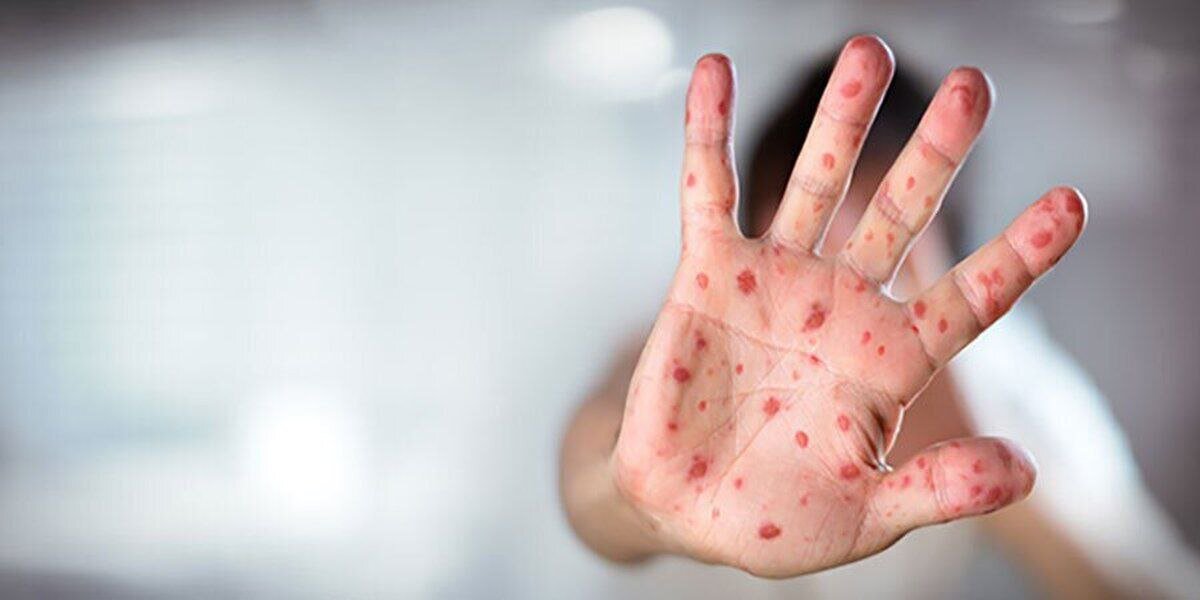WHO verifies Iran's elimination of measles, rubella in 2023

TEHRAN – The regional verification commission for measles and rubella (RVC MR), affiliated with the World Health Organization (WHO), has verified the elimination of the two diseases in the country in 2023.
Measles is potentially a deadly disease. Severe complications include pneumonia, diarrhea, blindness, and encephalitis (brain swelling). Measles vaccines (two doses) are administered at the ages of 12 and 18 months.
The measles vaccination program in Iran started in 1984 when 34 percent of the population was vaccinated in the first year and 90 to 95 percent of the population after 6 years. Also in 2003, 33 million people were vaccinated with a national program to eradicate measles in the country.
The WHO director for the Eastern Mediterranean Regional Office (EMRO), Hannah Balkhi, has lauded the health ministry's efforts and achievements on the elimination of measles and rubella in a letter to the Health Minister Mohammad-Reza Zafarqandi, ISNA reported.
According to the report on the 7th RVC MR in EMRO, Iran has successfully fulfilled all the criteria for measles and rubella elimination.
This achievement is the result of coordinated planning, widespread vaccination, epidemiologic surveillance, and comprehensive participation of the country’s healthcare system. It is a turning point in improving public health, which will strengthen Iran’s position in achieving goals at the regional and international levels.
Measles vaccination
In April, the deputy health minister Alireza Raeisi said some 98 percent of the target population in the national program for the immunization against measles had been vaccinated.
However, ten to twenty thousand children under the age of one have yet to get vaccinated, and about five percent of the vaccinated individuals develop measles, IRNA quoted Raeisi as saying.
In April 2023, the World Health Organization confirmed that measles and rubella had been eradicated in Iran.
However, concerns about the spread of measles in the country are growing. Disrupted vaccination programs in countries like Afghanistan and Pakistan are the main risk factor threatening Iranians’ health, Raeisi stressed.
Over the past Iranian years that ended on March 19, some 603 cases of measles were identified. Iranian and foreign nationals made up 91 percent and nine percent of the cases, respectively. Chabahar, Ahvaz, Hormozgan, and Zahedan, with 97 patients, 86 patients, 72 patients, and 68 patients, had the highest number of infected cases, the official noted.
Around 33 percent of cases are infants under one year of age, and children aged 1- 4 comprised 30 percent. Sadly, four infants under the age of six lost their lives, mainly due to malnutrition or underlying medical conditions, Raeisi added.
So far, about 82 confirmed cases have been reported since the beginning of the current Iranian year, the official said.
In May 2024, Iran received a total of 160 measles antibody kits with the help of the World Health Organization (WHO) and the European Civil Protection and Humanitarian Aid Operations (ECHO).
The procurement aimed to enhance measles diagnostic capacities in Iran.
The kits are donated to the Iranian National Measles Reference Laboratory to bolster its capacities to diagnose measles, enhancing the country’s ability to respond more effectively to outbreaks, the WHO website reported on May 12, 2024.
According to the report, WHO, in collaboration with ECHO, procured and provided the kits to the National Influenza Center, which serves as the National Measles reference laboratory for measles, rubella, and some other respiratory infectious diseases.
Syed Jaffar Hussain, WHO Representative and Head of Mission in the Islamic Republic of Iran, said: “The provision of measles antibody kits to the reference laboratory is a crucial step in strengthening the Islamic Republic of Iran’s ability to detect and respond to measles outbreaks effectively and maintain measles elimination status.”
Measles remains a significant public health concern globally, and timely and accurate diagnosis is crucial for effective outbreak response.
MT/MG
Leave a Comment